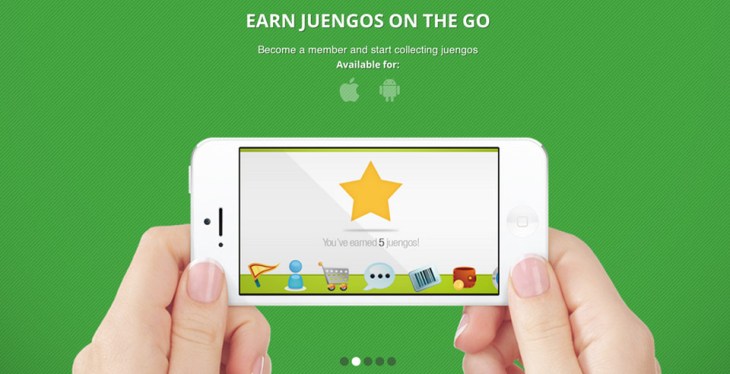Most loyalty platforms work on the simple premise that you are rewarded with a variable number points based on the purchases you make, and you can redeem those points for additional merchandise or services. Look no further than the airlines for the contemporary model…they practically invented it. And we all know that it works. It gets consumers to at least consider their regular airline every time they book a flight for possible savings.
Greek startup Juengo (pronounced Joo-en-go), has an interesting spin on loyalty and are live with their concept in Greece.
The concept — which is on display at TechCrunch Disrupt SF 2013 — rewards consumers for the actions they do instead of the items they purchase.
It works like this: First, a company or business can partner with Juengo and purchase a bulk amount of loyalty points (called, shockingly enough, Juengos). Once the company purchases them they can integrate those points into various mobile, online or offline activities using Juengo’s API or other tools provided. These tools allow the point accrual by consumers to be tracked. For example, it could be integrated in such a way that a consumer could accrue points for clicking a like button, scanning a 2D barcode, attending an event, signing up for a newsletter or other touch points. Once a consumer does the action to get points, they are prompted to create an account and from there they can begin to earn and store Juengo points for other actions.
The points are redeemable for merchandise at the closed loop Juengo Market and represent actual monetary value, but it seems like mostly gift cards at this point.
In some ways the model reminds me of Kiip, in that it rewards users for behaviors instead of purchases, however the founders indicated to me that they are different from Kiip in that they are broader than only a mobile footprint.
The pre-pay method of bulk point purchase is an interesting and practical move on Juengo’s part as it is cash instantly on their books, but I wonder how sustainable it will be and how valuable the impressions will be for businesses if it becomes just another system that consumers try to game. Then again, maybe that’s the whole point and the continued impressions eventually do convert to loyal behavior.
